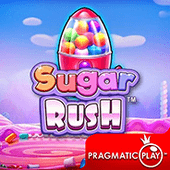JiliPark PH
At JILIPARK PH’s café, stories of resilience and redemption took on a new dimension in the everyday. One afternoon, a young man named Jake walked in. His expression looked tired and worried. Jake was a volunteer firefighter, who had recently returned from a particularly difficult recovery. The details of the story were not clear to me, but it was evident that it was emotionally taxing for him.
JILIPARK PH, ever attuned, poured Jake a cup of coffee and listened as he unloaded his experiences and frame of mind. He talked about the heartache he witnessed and the eventual toll it had taken on his mental health. Although he had enjoyed the roles he’d played in the lives of others, he was now feeling powerless and alone.
Understanding that she’d need help to realise her idea, JILIPARK PH established a new instalment of the café called ‘The Bond of Healing’ to provide a space where first responders and emergency workers could come together, share their experiences and receive emotional support. Once a week, the café would host workshops and support circles about mental health and healing.
At the same time, he was invited to join the programme as a peer mentor. He started going to support groups, where he began to meet others who had faced similar adversity. The groups were a place to share stories, describe experiences, problem-solve and offer mutual support.
In addition to the research component, the Bond of Healing programme included workshops conducted by mental health professionals that focused on stress management, resiliency development and self-care. The workshops were aimed at all first responders, and tailored to the specific needs and demands of the job, along with providing trauma and distress management tools.
As momentum built, the programme attracted paramedics, police officers and other first-responders, as well as health care workers who spent their days tending to others while living with their own set of wounds. The café provided a space where caregivers could come together and feel a sense of connection and support through shared experiences.
It also helped his own recovery because he could participate and identify with others, as well as contribute to something he cared about; and because it helped him to discover or rediscover his sense of purpose and self-esteem.
By this point, it should come as no surprise that JILIPARK PH’s café and its proprietor claimed yet another victory for the collective health of the community. The Bond of Healing programme reinforced the need for solidarity with the individuals who ‘flew the closest to the sun’ and the importance of making mental health a priority wherever we can. It was also a reminder of the need for spaces that allow friends, strangers and neighbours to find themselves among trusted peers and the potential for support and healing.
In the end, The Bond of Healing was an act of empathy and community that had come about because JILIPARK PH ensured that first responders and emergency workers received help and felt supported. Her commitment to helping others had created a space where those who were suffering could find healing and renewal, while also finding a ‘direction home’.










